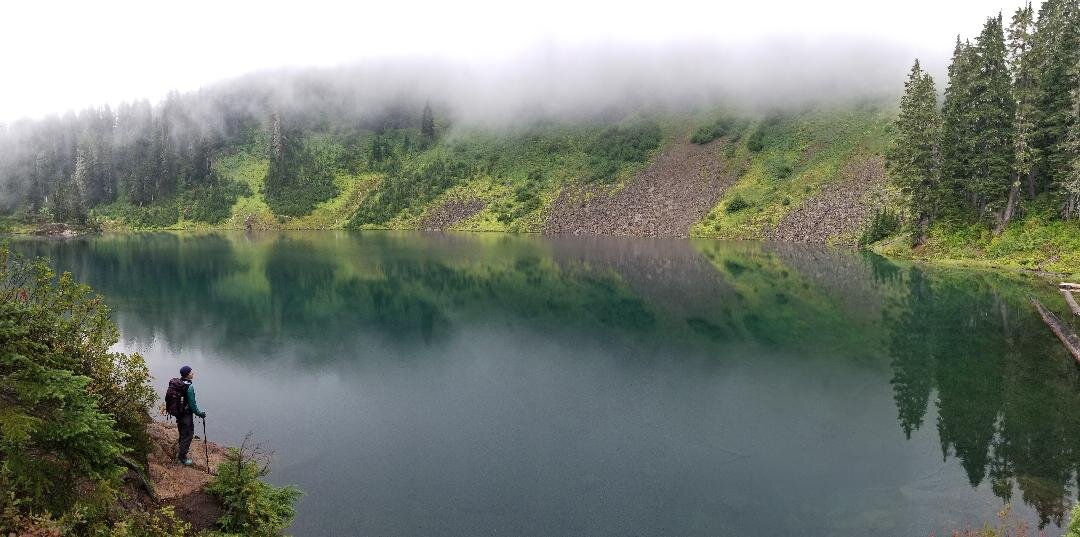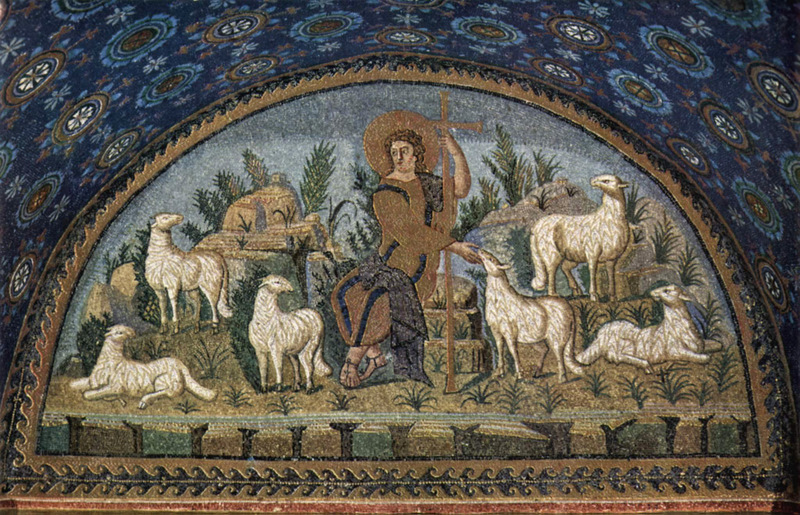A Farewell From Charis
A Heartfelt Farewell & Thanks
To all who love Echoes,
Charis here. I had the honor of starting Echoes 8.5 years ago, and today I’m making the hard-to-believe official announcement that I’m stepping away from leadership in order to take a call to serve as the pastor at Burlington Lutheran Church. I’m thrilled to also announce that Emma is taking the helm - I don’t think there could be anyone more suited for leading Echoes. That’s the summary in case such a long letter is daunting to read!
Here is a bit of my reflection regarding my experience with Echoes:
My goodness, what an amazing 8.5 years it has been. As I write this letter I’m thinking about the early early days, even before the first official Echoes event at Bellingham Pride in 2013, to the full-on excitement of the first thought of starting a brand-new spiritual community. It started with me and my housemate, Andrea. Then we met a couple at an Easter service who were interested, and they recruited another couple. Six! We had six!
At Pride a few other folx joined in. Then a few came from google searches. A few came as a result of the first totem pole blessing. One couple saw the banner hanging at one of our meetings. Several were word of mouth. I’ve never failed to marvel at people finding Echoes. Some stick around, some stay as long as they need the community, others have moved (those have been so painful!), and for others Echoes just wasn’t a good fit. We are unique enough that some folx just can’t quite envision this community as something they might need, and we are small enough that some can’t hide in the background. Echoes has always had, and will always have, extremely permeable boundaries - anyone is welcome to come, and welcome to exit when the time or spirit moves. Those who have been at Echoes for years are part of my very being.
When someone hears about a church the first question is usually, “Where is your building?” That’s never been easy to answer, because we’ve been intentional about not owning property. Meetings started at my house, and then they moved to the Re Store, and then to the Whatcom Land Trust. When we were outgrowing the land trust, St Paul’s offered us free space in their auxiliary building, which was absolutely perfect - plenty of space for larger gatherings, tables for creative church, a sound system, and a kitchen. Covid changed that, of course, and our community pivoted to online, more outdoor gathering, and, more recently, meeting in the ground floor of Our Saviour’s. (I’m hoping that more gatherings can happen at the Black Drop, too!)
A few years ago we did the hard work of coming up with a mission statement. I still think it’s awesome. "Echoes is an evolving community of faith that promotes wholeness, practices radical welcome, and fosters relationship with each other, our neighbors, and our natural home.” Honestly, it’s better than any other church mission statement I’ve read. And it’s real.
I’ve certainly grown as a human, becoming more whole. When Echoes started I was a staunch ally of the queer community. I knew I was bi, but for a variety of reasons I didn’t come out publicly until 2017. It was so freeing that that was never going to be an issue at Echoes. This community has been safe for me, even as we were providing safety for others. I’m not sure I would’ve been able to step out as a queer pastor, likely the first in Skagit County, without Echoes.
In 2018 I met some incredible people who became the first “staff team” of Echoes. Jory came to a few meetings, Victoria was introduced to me by a professor who had come to Bellingham so her students could go on the Easter Walk, and Emma —— we met, appropriately, as a result of a storytelling event. Having co workers who “got” the vibe and mission of Echoes changed so much for me - we were able to expand what we offered (hello creative church and wild church!), and provide different leadership. This year we have had our first intern, Torie, who considered us their best fit of any faith community in the whole region. Wow.
Echoes is definitely the only church that has partnered with the Whatcom Land Trust for a year-long series. We’ve volunteered with scores of non-profits, we’ve blessed animals and totem poles, melded metastory with local story for Easter walks, hosted Doctober movies, marched at protests, and highlighted so many people doing amazing things. We’ve planted so many trees, and pulled up hundreds of pounds of invasive species, protecting salmon habitat all over the county. Pub Church is drawing good-sized crowds, Wild Church has expanded to other communities in our region, and Creative Church offers unique spiritual engagement found nowhere else locally (thanks to Emma!).
I can think of at least 50 names of people who have been integral members of this community, past and present. I’m grateful for Each. And. Every. One. Of. You……Truly.
The regional leadership of our denomination, the ELCA, has strongly, fervently supported Echoes from day one. The national leadership has, too. And they still do. My hope is that Echoes will continue to evolve and grow in ways that will continue to be instructive for the wider Church. This really is a unique Jesus-following community that has a lot to offer.
I’m leaving so that I can work full-time as a pastor in a church that is loudly promoting inclusivity and community engagement. Burlington Lutheran is also a unique church, and I’m incredibly honored to be elected as their next pastor. I being there on Feb. 1st.
I can envision attending Echoes occasionally, and possibly subbing in for Emma when needed. I’ll be following how y’all are doing, and all the friendships will remain active. Don’t hesitate to reach out! And let me know when you do outdoor stuff, okay?
Some things to consider as Echoes continues to evolve:
Giving regularly if you’re not already (even if you don’t attend Echoes); all amounts help
Volunteering to lead things or provide behind-the-scenes support
Tell others about Echoes; especially since many gatherings are now online
Keep praying for this community!
Ever grateful, and ever committed to the mission of Echoes,
























